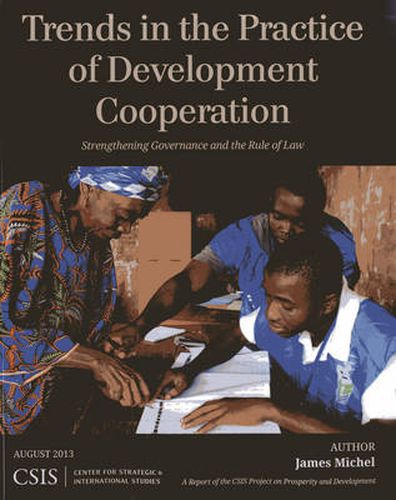Readings Newsletter
Become a Readings Member to make your shopping experience even easier.
Sign in or sign up for free!
You’re not far away from qualifying for FREE standard shipping within Australia
You’ve qualified for FREE standard shipping within Australia
The cart is loading…






There is a broad and enduring international consensus that good governance and the rule of law are important for the attainment of sustainable development results. But recognizing that good governance is important for development is one thing; carrying out effective international programs to support improved governance is something very different. It seems logical that international cooperation efforts intended to help achieve such results should include programmatic support for these important elements. During the past 30 years the development cooperation agenda has expanded to include programs to strengthen a broad range of public institutions-parliaments, judicial systems, election bodies, municipal governments, anticorruption agencies, and human rights defenders-along with the related roles of civil society and the private sector. Over that time, lessons have been learned about working effectively in these sensitive areas at the intersection of economics, law, and politics. However, in many cases progress has been disappointing or the impact uncertain.
$9.00 standard shipping within Australia
FREE standard shipping within Australia for orders over $100.00
Express & International shipping calculated at checkout
There is a broad and enduring international consensus that good governance and the rule of law are important for the attainment of sustainable development results. But recognizing that good governance is important for development is one thing; carrying out effective international programs to support improved governance is something very different. It seems logical that international cooperation efforts intended to help achieve such results should include programmatic support for these important elements. During the past 30 years the development cooperation agenda has expanded to include programs to strengthen a broad range of public institutions-parliaments, judicial systems, election bodies, municipal governments, anticorruption agencies, and human rights defenders-along with the related roles of civil society and the private sector. Over that time, lessons have been learned about working effectively in these sensitive areas at the intersection of economics, law, and politics. However, in many cases progress has been disappointing or the impact uncertain.